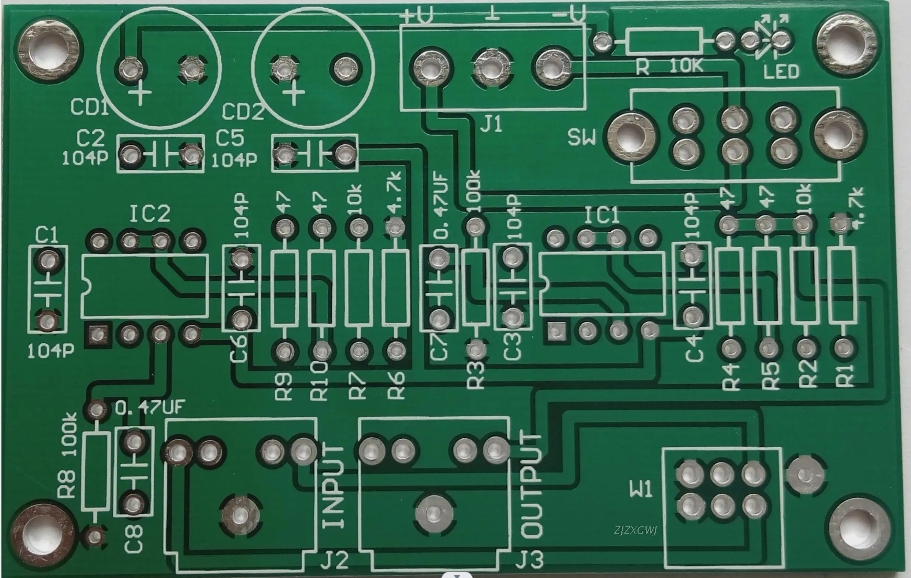HASL (Hot Air Solder Leveling) is a metallic surface finishing technique, which is performed on the outermost layer of the PCB board to protect the exposed copper surfaces like tracks until the component placement and soldering is completed.
The HASL coating is composed of Solder with 63% Tin and 37% Lead, and during the assembly process, this coating gets dissolved with the soldering material.
The HASL Coating is applied as per the steps below:
The process starts with the immersion of the PCB board into a molten tin/lead solution, where all exposed copper area is covered by this solution.
After that, a Hot Air Leveling (HAL) ensures the uniformity of solder deposit by removing the excess solder from the PCB board, using high pressure hot air knives. The purpose of this is to leave a uniform and thin possible layer on the board.
This coating protects the copper traces from corrosion until the board goes in for the assembly process.
Advantages of HASL:
Resistance to copper corrosion
Excellent wetting capability during the soldering process
Provides excellent quality solder joint (solderability) by making component soldering more effective
Economical
Can be re-worked easily
Suitable for Lead-free hasl PCBs
Reduce the chances of PCB failure
Limitations of HASL:
It offers high thermal stress to the PCB, which results in defects.
Due to the inconsistent thickness of HASL coating, it’s not a feasible solution for SMT component placement.
Not suitable for PTH (Plated Through Hole) components.
Less environment-friendly

